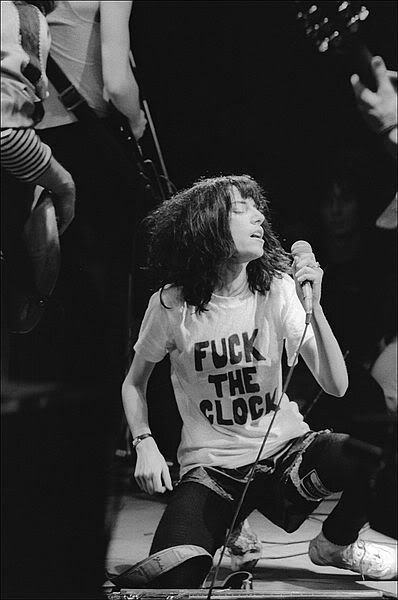
Patti Smith (AKA "The Godmother of Punk") Performing Live
Patti Smith must be one of the clearest examples of evergreen artistry in the history of rock and roll, and I dare say in the whole of the 20th Century. After actively chasing what she termed herself a “career of evil” and releasing some albums that exemplified how music could be noise as organized or disorganized as one wanted and still be music, she settled down into a life of domesticity. And when she surfaced as a performer again, it was no longer as the rampant provocateur of yore. It was as a softer performer with excellent interpretative timing, able to take songs like “Smells Like Teen Spirit” and sing them from a maturity that only emphasized how being tamed by others and resolving to tempter yourself down are entirely different things.
Patti Smith was born on December 30, 1946 in Chicago. She would find a creative outlet in music after having tried mostly everything else: poetry, playwriting, acting, painting…
Her first successes as a musician came well before “Horses” (her epochal debut, released in 1975). Before that, she worked as a lyricist for Blue Oyster Cult, and those collaborations were to result in the sole gold and platinum records of her career. More importantly, they gave her the resolution to carry her own tunes in public. The Patti Smith Group was then born, and this ensemble would become the first punk band associated with the mythical CBGB club to issue an album (well ahead of The Ramones). “Horses” came out in 1975 (preceded by the excellent non-album single “Hey Joe/Piss Factory”), and it fused the sensibilities of French poets like Baudelaire with some of the very first punk mannerisms ever put to tape. The merits of the album are appreciated even better when we realize that her writing style had already reached this maturity by 1972, the year in which she released “Seventh Heaven”, an accomplished collection of poems that blended symbolism and American beat aesthetics in a defiantly convincing way.
“Radio Ethiopia” was the PSG’s sophomore effort, and it was a mostly dissipated album that made the band reconsider what they were doing and come up with the triumphant “Easter” in 1978. Featuring the Bruce Springsteen-penned hit “Because The Night” and the ferocious “Rock & Roll Nigger”, it was to be their most ordered and cohesive collection of songs. Of course, an incident in which Smith fell offstage and fractured her neck vertebrae when touring the preceding album was also a life-changing experience. For a time, it wasn’t clear if she was ever going to even get up and walk again. Continue reading
